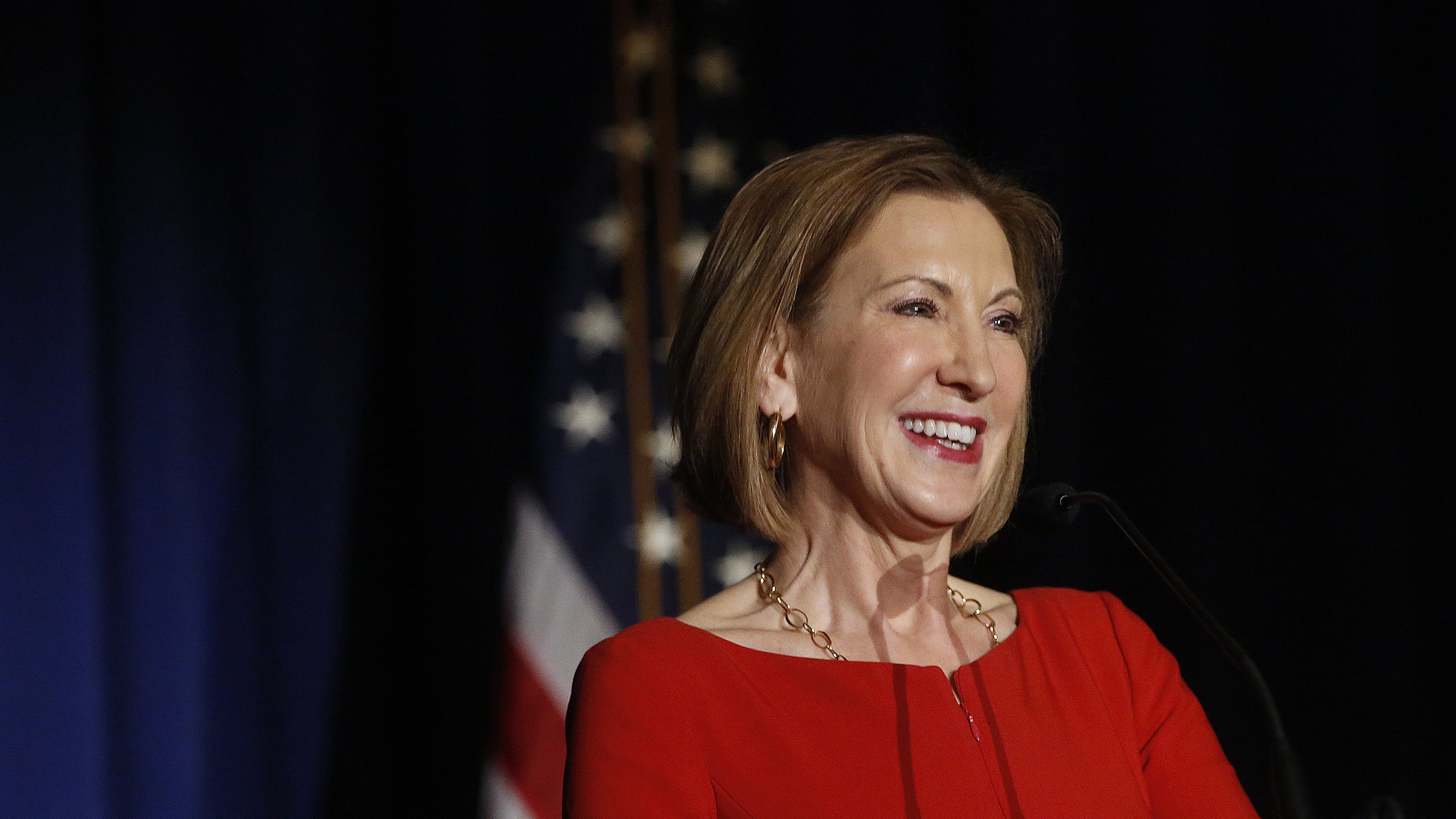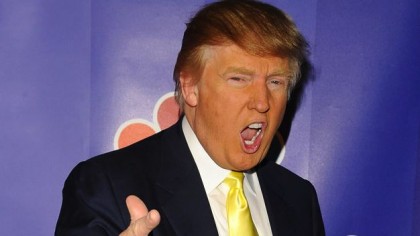Did Carly Fiorina really ruin HP?
Separating the facts from the Donald

Donald Trump likes to insult people. It's sort of his thing, you could say. The jabs roll right off his cuff too, as if he spends his downtime just thinking up affronts, only to sling them at whomever happens across his path, like a bully with a snowball.
But in the most recent GOP primary debate, the man with the golden coif made a dig at one of his opponents that for many in the tech industry could not go ignored. Trump slammed Carly Fiorina, and in this instance, his jeering rant had nothing to do with her looks.
"The company is a disaster," Trump said, referring to Hewlett-Packard. Fiorina had just boasted her remarkable achievements as CEO of HP, which she captained from 1999 until 2005. "[HP] still hasn't recovered," Trump continued. "In fact, today, on the front page of The Wall Street Journal, they fired another 25, or 30,000 people, saying, 'We still haven't recovered from the catastrophe.'"

The sad truth
It's true that on September 16, the day of the debate, WSJ ran a story called "H-P Outlines Up To 30,000 More Job Cuts." The article indicated that the company was entering the end of a long period of layoffs.
Score one for Trump? Not so much. He jumped the gun on the takeaway. HP's history is complicated. Let's consider what major events happened under Fiorina's leadership:
- July 1999: Fiorina is appointed CEO of HP, replacing former CEO Lew Platt, who retired several months earlier. Fiorina was 44 years old at the time and a rising star. She'd served as president of Lucent Technologies' Global Service Provider Business, and had led the company's IPO.
- June 2000: HP establishes Agilent Technologies, the spin-off of its "Medical Products and Instrument Group." It's IPO makes Silicon Valley history, raising $2.1 billion.
- October 2000: HP announces it will acquire Bluestone Software, a provider of software for enterprise interaction management
- January 2001: At this time, the company says it has 88,500 employees worldwide and total revenue from continuing operations of $48.8 billion in its 2000 fiscal year.
- March 2001: HP creates HP Services, a new wing of business focused on consulting.
- May 2001: HP introduces the Itanium chip, in collaboration with Intel.
- September 2001: HP announces it will acquire Compaq for $25 billion in stock. The merger was seen as one that could bump HP into a position of total dominance in the computer world.
- May 2002: The deal with Compaq is sealed. The HP ticker is changed from HWP to HPQ.
- May 2003: Fiorina outlines HP's new "adaptive enterprise" marketing strategy.
- January 2004: HP Announces Digital Entertainment Strategy with New Products and Partnerships Across Music, TV, and Movies
- August 2004: Fiorina fires three top executives: Peter Blackmore, EVP; Jim Milton as CSG SVP; Kasper Rorsted XSG SVP and managing director for the Europe, Middle East and Africa region. The reasoning is that these leaders failed to bring in the big bucks to meet expectations.
- December 2004: HP abandons its Itanium development efforts, handing the torch over to Intel Corp. HP also ditches plans to integrate Compaq's Tru64 Unix tech into its HP-UX OS.
- January 2005: HP announces organizational realignment, in which HP's Imaging and Printing Group (IPG) and its Personal Systems Group (PSG) are combined.
- February 2005: Investors and HP board members are deeply unhappy with Fiorina, who is abruptly forced to resign by the HP board, of which she was the chairman. When she goes out, company stock goes up.
Clearly, Fiorina's track record shows that she wasn't a stellar CEO. She failed to make the company thrive against its main rivals at the time, Dell and IBM, respectively. She bought growth via the acquisition of Compaq, but didn't stimulate growth organically. Her top people were screw-ups, or so she made them appear to be, and that reflects almost as badly on the boss as it does on the fired employees. But there's something more essentially wrong with Fiorina as a leader. She wasn't likable to the people that worked for her.
Sign up to the TechRadar Pro newsletter to get all the top news, opinion, features and guidance your business needs to succeed!